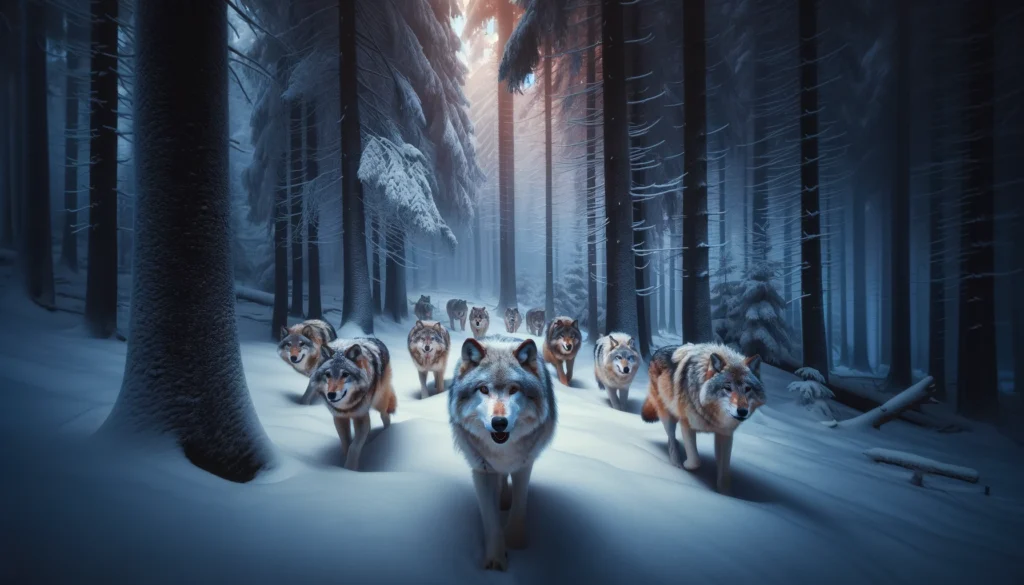
Table of Contents
A2 Level Questions
- What color are wolves?
- Where do wolves live?
- Do wolves live alone or in groups?
- What do wolves eat?
- Are wolves active during the day or night?
- How do wolves communicate with each other?
- What sounds do wolves make?
- Can wolves be found in your country?
- Do wolves have families?
- How do wolves take care of their babies?
- What do you think wolves do in the winter?
- Are wolves dangerous to people?
- How do people help protect wolves?
- What movies or stories do you know with wolves in them?
- Why are wolves important in nature?
B1 Level Questions
- How do wolves hunt for food?
- What is the role of the alpha wolf in a pack?
- How do wolves affect the ecosystems they live in?
- Why do wolves howl?
- What challenges do wolves face in the wild?
- How do wolf packs establish territories?
- What adaptations help wolves survive in cold climates?
- How do humans impact the survival of wolves?
- Why is it important to conserve wolf populations?
- How do wolves interact with other animals in their habitat?
B2 Level Questions
- Discuss the social structure of a wolf pack.
- How have wolves been portrayed in folklore and mythology?
- What are the controversies surrounding wolf conservation?
- How do wolves contribute to biodiversity?
- What are the differences between wolves and domestic dogs?
- How does climate change affect wolf populations?
- What research methods do scientists use to study wolves?
- Discuss the implications of reintroducing wolves to their natural habitats.
- How do wolves maintain the health of prey populations?
- What ethical considerations arise in the management of wolf populations?
C1 Level Questions
- Analyze the impact of wolves on controlling overpopulated species.
- Discuss the role of wolves in trophic cascades within ecosystems.
- Evaluate the effectiveness of current wolf conservation strategies.
- How do cultural perceptions of wolves influence conservation efforts?
- Discuss the genetic diversity among wolf populations worldwide.
- Analyze the challenges of coexistence between humans and wolves.
- Evaluate the role of wolves in indigenous cultures and their spiritual significance.
- Discuss the impact of habitat fragmentation on wolf populations.
- How do wolves communicate and establish hierarchy within their packs?
- Analyze the role of wolves in literature and what they symbolize.
C2 Level Questions
- Critically assess the role of apex predators, like wolves, in ecosystem dynamics.
- Discuss the philosophical implications of human-wildlife conflicts involving wolves.
- Evaluate the long-term effects of wolf reintroduction programs on local communities and economies.
- Analyze the intersection of wolf conservation with climate change mitigation efforts.
- Discuss the implications of genetic studies on understanding wolf evolution and conservation.
- Critically examine the balance between wolf protection laws and the rights of landowners.
- Explore the role of wolves in ecological resilience and recovery processes.
- Discuss the ethical considerations in using wolves for ecological tourism.
- Analyze the impact of wolves on the narrative construction of wilderness in environmental discourse.
- Evaluate the use of technology in tracking and studying wolf movements and behaviors.

